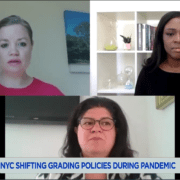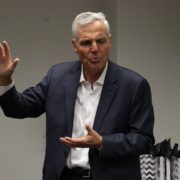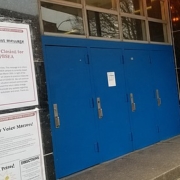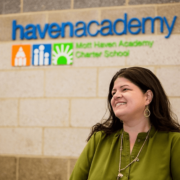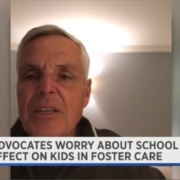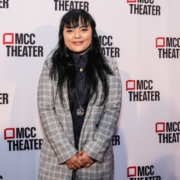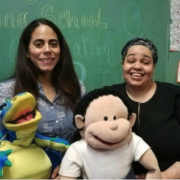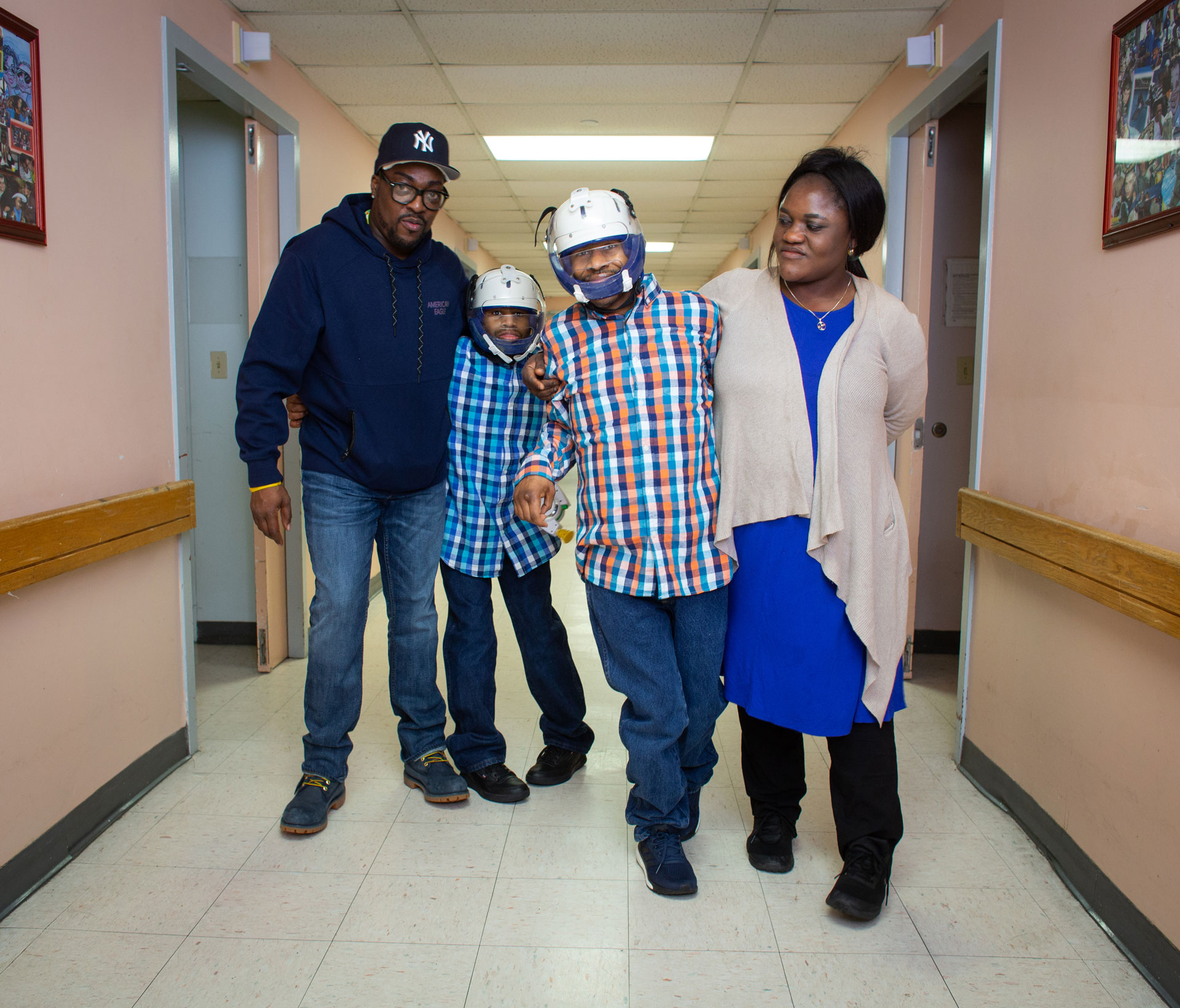Remote learning is taking a toll on students as they navigate a new way of staying connected to their teachers, friends, classmates, and lesson plans from home. Jessica Nauiokas, Head of School at Haven Academy, discusses how our Haven scholars are receiving guidance from staff on navigating these difficult times, including virtual mental health counseling, speech therapy sessions, and more.
During a Thursday webinar hosted by NYN Media, City & State’s sister publication, our CEO & President Bill Baccaglini joined nonprofit leaders from Safe Horizon and the Chinese-American Planning Council to discuss COVID-19 impact on nonprofit management. Panelists highlighted the need for continued advocacy across the sector, whether to support nonprofits at large or the communities they serve across various levels of government.
“The last thing we as a city can afford, at the end of the day, when the clouds clear and the dust settles, is for these neighborhood-based agencies … (to) not be able to make it,” said Bill Baccaglini, who runs the child welfare organization The New York Foundling. “We cannot afford that as a city.”
Read more (and watch a recording of the webinar) at City and State NY.
New York City Public Schools Chancellor Richard Carranza said recently that “learning will continue” as schools remain closed due to COVID-19… However, some politicians and education advocates say the learning never started.
Our President and CEO, Bill Baccaglini, discussed his concerns with New York Amsterdam News. He fears that the children in foster care will miss out on one-third of a school year’s education.
“I have kids in foster care who are going to be high school juniors in foster care, unlike kids on the Upper East Side and Upper West Side whose parents are going to make sure that they have what they need before they go back to school in the fall. Who’s going to help my kids catch up?” he says.
Read more on New York Amsterdam News (pdf)
A school located in one of the poorest Congressional districts in the nation has made a smooth transition to virtual learning. Since shuttering its doors on March 13, Mott Haven Academy Charter School has managed to successfully provide quality remote learning education to its students amidst the COVID-19 crisis.
“I’ve been so impressed with the creativity for our students and the creativity of Haven’s teaching team,” said Mott Haven’s Head of School and Founder Jessica Nauiokas.
While closing schools is necessary to prevent the spread of COVID-19, our President and CEO Bill Baccaglini is concerned that remote learning will cause students – particularly those in the child welfare system – to fall behind.
“Even on the best day, this remote virtual learning is not what being in a classroom is,” our President and CEO Bill Baccaglini told Spectrum News. He advocates one-on-one summer tutoring to help students close the gap. “Make the investment now, because if you don’t make the investment now in these young people, these are the young people who are going to find themselves in adult systems that they just may never get out of,” says Baccaglini.
Bill Baccaglini, our President and CEO, appeared on CBS New York to discuss his concerns – and propose potential solutions – on the impact that COVID-related school closures will have on students in foster care. “If we don’t invest now and we allow them out without a high school degree, and no college degree, these are young people who are more likely than other kids to wind up in an adult system which they may never get out of,” he said.
In the 12 years since Mott Haven Academy opened its doors in the South Bronx, our school has been guided by a spirit of deep empathy and defined by the never-give-up attitude of our staff and students.
That caring and resilience have been especially evident in the weeks since we closed on March 13.
Performances begin March 4 at Rattlestick Playwrights Theater for the world premiere of Ren Dara Santiago’s The Siblings Play. Directed by Jenna Worsham (Agnes) the new work marks the professional playwriting debut of Fila-Rican playwright Santiago.
Set in a rent-stabilized Harlem apartment in 2014, The Siblings Play follows three teenagers left to raise each other in their parents’ absence. The play looks at the ways in which they protect, love, fight, and diminish in the wake of their family history; and the complexity of what it means to grow up with parents who are too young to be parents in the first place…
The Siblings Play is working with six community partners, Counseling in the Schools, The Drama Club, Healing Tree, New York Foundling, Student Leadership Network, and The Possible Project on a series of post-show conversations, student matinees, and work experience.
Bonnie Loughner, LCSW, Assistant Vice President of our School & Community Impact Program wrote the following post, detailing the impact of using the Incredible Years® behavioral health program in NYC classrooms:
The New York Foundling is one of New York City’s oldest and largest social service organizations. With an internationally-recognized and interrelated set of research-backed services, we work in partnership with children, adults, and families who are working to create transformational change in their own lives.
The Foundling provides evidence-based and evidence-informed programs that focus on keeping families together, preventing abuse and neglect, providing academic support for youth, and giving people with developmental disabilities the tools and training they need to lead independent lives. We understand and know that inter-disciplinary evidence-based preventive interventions are crucial to increasing protective factors for children and families and lead to better outcomes in the long-term. This is notably true in an educational context with children spending between 943 to 1,016 hours a year in a school setting with learning continuing in their home (Pew Research Center, 2014).
In 2016, The Foundling partnered with Incredible Years® as a way to support children and families with social emotional development and parenting skills. We knew that the schools we served needed access to tested and effective preventive programs because we saw the amount of crises that were happening on a daily basis. We looked to Incredible Years, as well as other evidence-based programs, as a way to help shift schools to a more proactive mindset…
Read more at The Incredible Years® Blog.
The New York Foundling on Thursday announced that it has more than doubled its Developmental Disabilities Division’s residential and day habilitation sites and locations and expanded its services. The expansion, which brings more than 50 new supportive residences and three-day habilitation sites to Brooklyn, Queens and the Bronx, is a result of the Foundling taking on programs and services previously operated by the THRIVE Network and Catholic Guardian Services, officials said.

